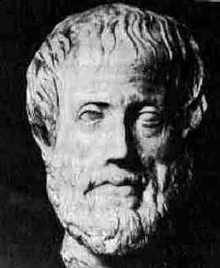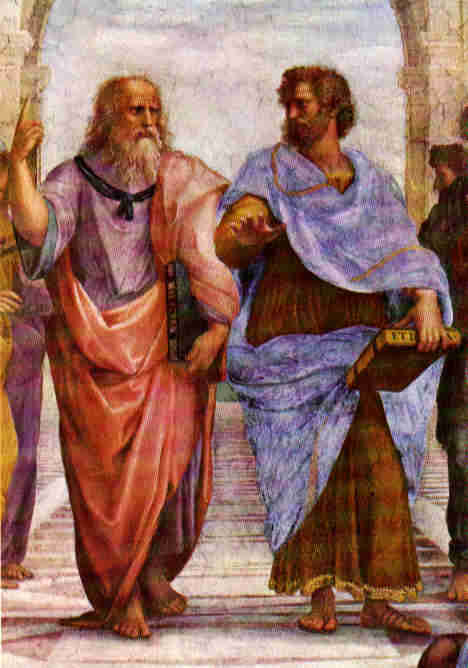Aristotle was the
greatest scientist of the ancient world. He is considered
the father of the natural sciences. Aristotle believed in using logic and reason, rather than the anger
or pleasure of gods, to explain events.
believed in using logic and reason, rather than the anger
or pleasure of gods, to explain events.
Aristotle was born in
Macedonia, a land north of the Greek peninsula. At that
time, many Greeks believed Macedonia was a backward place
with no culture. Aristotle moved to Athens and studied at
Plato's Academy. He remained at the school for more than
twenty years until shortly after Plato died.
Aristotle then returned
to Macedonia, where King Philip hired him to tutor
Alexander, Philip's thirteen-year-old son. The boy later
grew up to become Alexander the Great, one of the
greatest military conquerors of all time. Aristotle
returned to Athens in 335BC and opened a school he called
the Lyceum. Alexander provided Aristotle with the money
for research. While he was conquering the world,
Alexander sent animals and plants back to the Lyceum for
Aristotle to study.
Aristotle wrote 170
books, 47 of which remain. He wrote about astronomy,
zoology, geography, geology, physics, anatomy and many
other fields. He wrotes about what other had learned
before him, about what his students learned in their
research, and what he observed on his own. Aristotle was
a also a philosopher who wrote about ethics, psychology,
economics, theology, politics, and rhetoric.
Aristotle's greatest
influence was in the theory of logic. He believed there
was a explanation for everything that happened in the
universe. Aristotle made many mistakes, but his ideas
were the basis of scientific inquiry.

In The School of Athens, by Raphael,
Aristotle is the younger man. To his left is Plato, his
friend and teacher. Plato is seeking answers from above,
while Aristotle argues that truth can be found here on
earth. Read about both philosophers to understand their
beliefs.
 believed in using logic and reason, rather than the anger
or pleasure of gods, to explain events.
believed in using logic and reason, rather than the anger
or pleasure of gods, to explain events.

